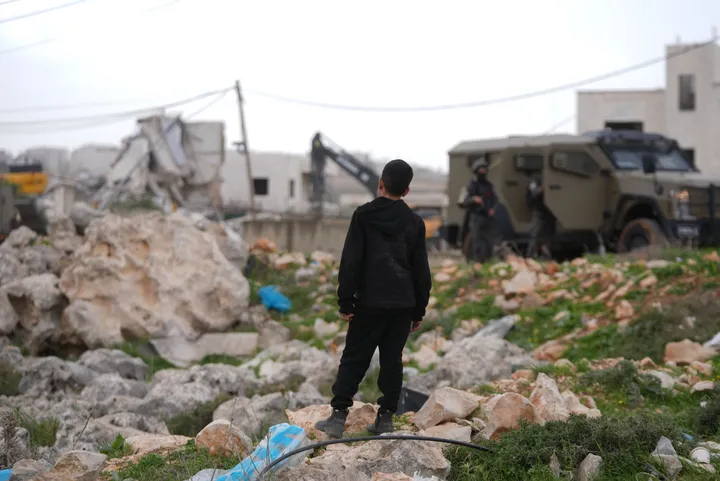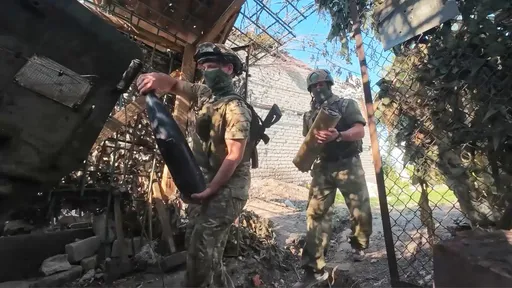Long on rhetoric and short on punitive actions: Palestinians have slammed an Arab League resolution that counters US President Donald Trump's move to recognise Jerusalem as Israel's capital.
The League released a two-page resolution on late Saturday after diplomats of the 22 Arab states gathered in Egypt. The group "condemned" Trump's stance and called it a "grave" development.
Palestinian reaction was swift.
"The useless entity (Arab League) should dissolve now," one popular Gaza-based blogger Omar Gharieb told TRT World, "and save all the money it wastes on repetitive powerless statements."
"[Arab states] are responding with the same routine, lacklustre language of the past," Ramzy Baroud, a Palestinian author who specialises in the Israel-Palestine conflict said, "knowing full well that such approach will not make an iota of difference or reverse the US decision or Israeli transgressions."
The League stopped short of calling for consequences for the US, despite some members calling for an embargo on US imports and the downgrading of ties with Washington.
Baroud said that the League is going through "the same predictable motions" and is "impotent and ineffective."
Why is Trump's move controversial?
Last week's US recognition of Jerusalem as Israel's "undivided" capital and the announcement that the US Embassy would relocate from Tel Aviv to Jerusalem has sparked global fury.
Israel says that all of Jerusalem is its capital.
Palestinians want East Jerusalem, which Israel occupied and annexed in a 1967 war, as the capital of a future independent state.
The League's resolution, which also calls for UN Security Council action on Trump's decision, doesn't match up to the outrage visible in the streets of occupied West Bank, blockaded enclave of Gaza and in protests elsewhere in the world.
Immediately after the resolution was made public, Turkey called on the alliance of Muslim states to do more than condemn the US stance while Iraq's foreign minister Ibrahim al Jaafari warned that the resolution did not match the gravity of the situation.
Lebanon's Foreign Minister Gebran Bassil suggested Arab nations must consider imposing economic sanctions against the US "beginning with diplomatic measures, then political, then economic and financial sanctions."
But the League went ahead with the resolution regardless.
Should sanctions be on the table?
"A real Arab position should have included sanctions against the US, as per Lebanon's demand. It should have called for immediate end of all diplomatic ties with Israel and with any Arab country maintaining contacts with Tel Aviv, openly or secretly," Baroud said.
Baroud said the resolution should have also offered "a clear future strategy" to help Palestinians as they navigate through this sensitive transition, by reaching out to new alliances.
"The sad reality is that Arab countries have no real intentions of upsetting the current alliance with the US. These countries operate on the basis of self-serving agenda, in which neither Jerusalem nor Palestine are factors," Baroud said.
Complicit states
The League's response has increased frustration, palpable amongst the Palestinians, who have been unable to ameliorate their situation for decades.
"Many of the Arab countries are really complicit ... since the beginning of our sufferings," a Palestinian Christian leader based in occupied West Bank who wished to remain anonymous for fear of reprisals said. "Trump knows some of his friends in the Arab world won't say 'No' loudly."
"It started with the Hussein-McMahon correspondence (in 1916)," he said.
The correspondence refers to a series of letters between then Sharif of Mecca Hussein bin Ali and British High Commissioner to Egypt Henry McMahon, in which the latter promised independence to the Arab states in exchange for their revolt against the Ottoman rule.
Some are inclined to agree – with caveats. "We can't expect much from countries like Syria or Yemen or Jordan, because they are facing their own problems," Qassem Tarayra, a merchandise seller in Bethlehem, occupied West Bank said.
Elderly Palestinians like Mohamed Hassan, 85, seek divine intervention to end the crisis. “It is (now) only up to God to protect this place," said Hassan, who was born and raised in Jerusalem.
Having seen Israeli's creation and occupation for almost seven decades, he says he remains in Jerusalem "as one of its guardians against the occupation."
The Long Game
Israel has militarily, diplomatically and economically strengthened itself with the help of its neighbours, Doha-based investigative journalist and Middle East analyst Naveed Ahmad said, and that "winning a war is not only out of question, but may inflict further weakening of [Arab] opponents or probably disintegration."
The fallout over Trump's move also "favours Iran, Al Qaeda and Daesh in equal measure – all disruptionists," Ahmed said. "I don't see a conspiracy or connivance on the part of Arab world," he said of the League's resolution.
But some say the resolution still has bite "because it proves that they cannot ignore the issue and that many Arab states have to work under the pressure of the angry streets," Turkey-based political analyst Ali Bakeer said.
"Of course, the outcomes of such meetings lack punitive measures against US, but still it can send an important message for the US administration and provoke other international institutions not to stay silent."
Bakeer said that the Arab countries, in general, are not considering cutting or downgrading ties with the Trump administration right now.
"But things can develop in unexpected ways. The protests of the Arab-Muslim masses can easily turn against the Arab regimes at certain point, and this is what the regimes fear most."























